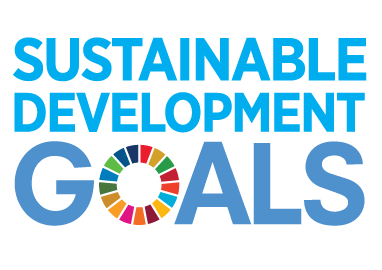A landmark study of the relationship between each of the United Nations Sustainable Development Goals (SDGs) has found that tackling inequality in rich countries could unlock the prize of a better and more sustainable future for all.
Professor David Lusseau, from the University of Aberdeen, and Francesca Mancini, a PhD student, applied network science techniques to analyse the relationship between each of the 17 SDGs, in order to establish how they interact with each other.
Their analysis found that in high-income countries, goals related to climate change and responsible consumption are having a negative impact on progress towards many other goals, in particular equality of opportunity – i.e. giving people the power to effect positive change in these areas.
Conversely, in low-income countries the approach to sustainability, and in particular to tackling poverty, is on track to deliver on all SDGs by the 2030 target set by the UN.
The study, which is published today in Nature Sustainability, includes a recommendation for a new ‘sustainability deal’ that prioritises equality of opportunity in activities around climate action and responsible consumption in rich nations, and that continues to prioritise poverty alleviation in low-income countries. The authors believe that this approach could unlock the current barriers to progress towards the 2030 target.
Professor Lusseau commented: “From their inception, there was a clear understanding that the SDGs interact but the whole picture of those interactions was murky, with conflicts emerging in some areas but not others.
“By taking a network science approach we studied the whole range of SDG interactions – which we called the ‘sustainome’ – to try to understand how we can prioritise goals to maximise benefits for all SDGs.
“What is clear from our analysis is that our approach to sustainability for low-income countries is on track to deliver on all SDGs, but this isn’t the case for high-income countries.
“There are a multitude of complex factors at play, but activities focused on climate action and responsible consumption are having indirect and negative effects on other areas, primarily those aimed at reducing inequality.”
Citing one example, Professor Lusseau pointed to the high cost of electric cars as a barrier to participation in climate action – thus widening equality of opportunity in people’s ability to help realise positive change. He also pointed to the need to provide skills training to create more opportunities for all in the ‘green’ economy.
“What is now clear is that we will not be able to achieve all SDGs in high income countries using the approaches we have used over the past 25 years,” Professor Lusseau added.
“We need to place inequalities at the core of our actions to reduce consumption and change our climate impacts. That means a new sustainability deal to ensure that all have the same opportunities during our transition to low carbon, responsible consumption economies.”


